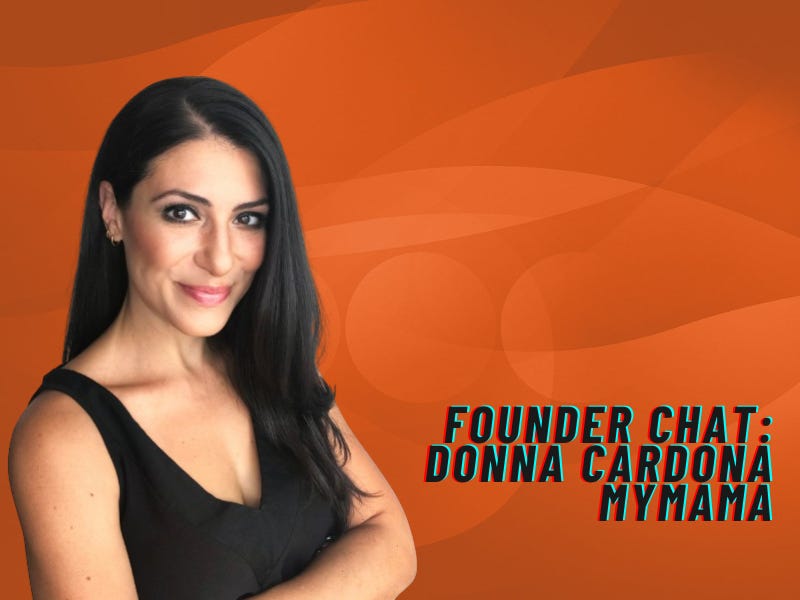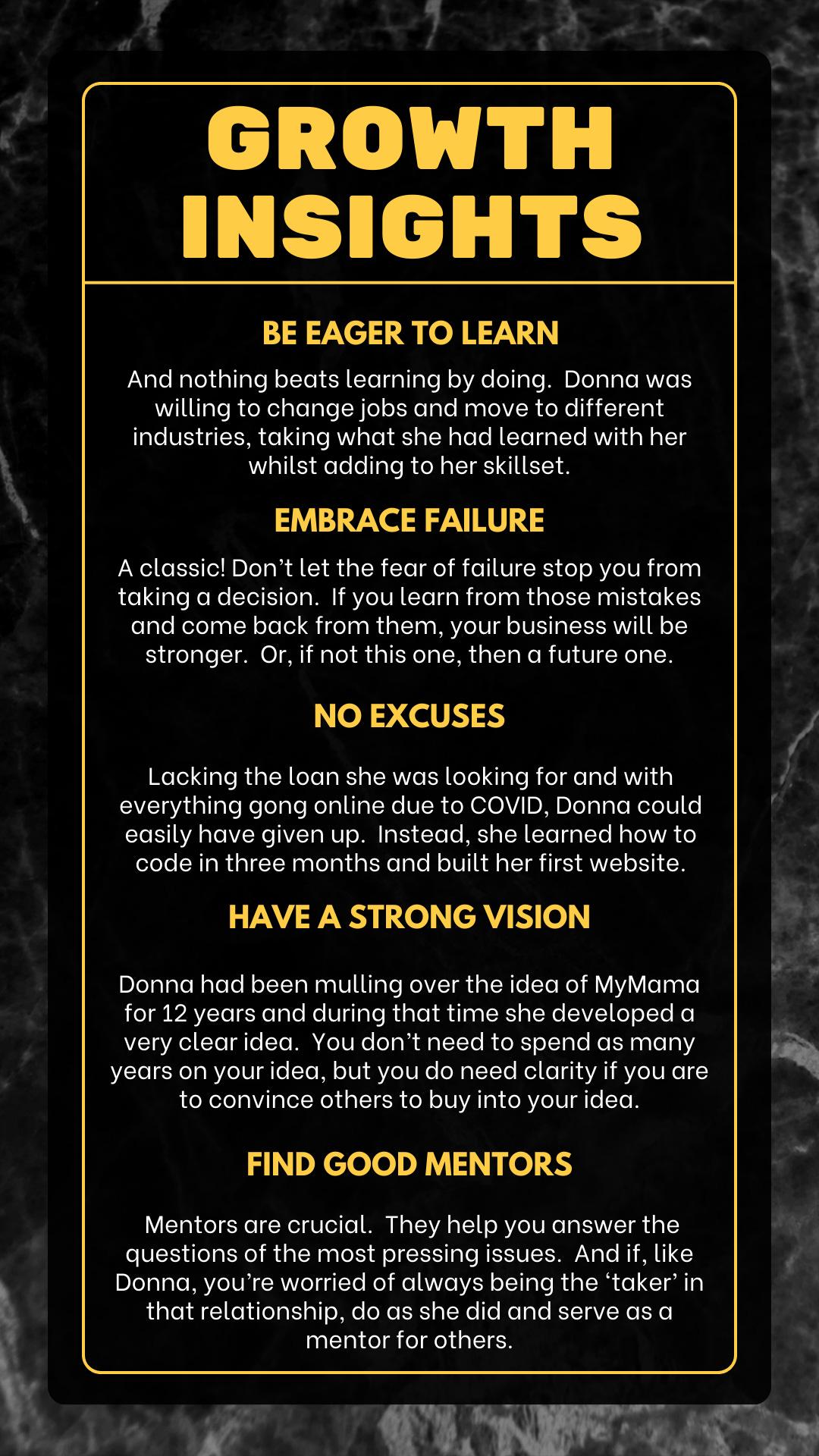Donna Cardona first came to a lot of people’s attention on the first season of Shark Tank Malta. Determined, sharp and acutely aware of the value of her idea, she was undoubtedly one of the stars of that season.
That appearance on Shark Tank was merely one notable moment on the path that led to opening her own business; a fascinating story with plenty worth examining.
Despite creative tendencies, at school Donna was “encouraged to pursue sciences and a career in medicine; traditional mentalities and, as it turned out, very bad advice.”
“I clearly did not have the flair for that and failed to get into medicine at University.”
That lesson was quickly absorbed and as her course at university was coming to an end she began to look for a job although, contrary to everyone else, her ambition wasn’t restricted to a lab job and endless, repetitive tasks but something that would allow her to express her creativity.
Over the next years she began working at a dairy product manufacturer before moving to another company with very different products five years later. Still, the itch to do something different remained. In fact, it grew bolder.
“When I was 3 months pregnant with my fourth daughter, I left the company as I felt I couldn't really grow and had very limited creative freedom at that point. I got a job in a completely different role, on purpose, at 3 months pregnant with full disclosure to my new employer, as I wanted to freelance in food development on the side - without risking conflict of interest - while learning about a totally different industry.”
“I was business development manager for a translation company for just over a year, freelancing as a product developer, and working night shifts on the MyMama concept with a newborn.”
What is the elevator pitch for MyMama?
MyMama is a centralised platform for expert-led pregnancy and parenthood advice, education and community support.
Could you share more about what you're striving to achieve with MyMama?
Parents nowadays need to take a very different approach to raising kids than previous generations. The 'village' is no longer available and there's an obvious need for reliable information to guide us through the different stages of raising a family.
While there's many resources, courses and content available, it's often a struggle to filter through all of this and understand which advice is reliable, up-to-date and not solely based on theory.
All parents’ needs are facts and practical tips to make their lives a little easier, and a supportive community so they know they're not in this alone. Which is where MyMama comes in - our multi-disciplinary team of experts not only deliver online and in-person courses but are also available for one-to-one advice and troubleshooting.
Our aim is to combine our team's expertise and empathy with technology, to provide parents with flexible, efficient and medically-sound advice and support when they need it.
As a startup founder, which skills have you had to develop to overcome the challenges you've faced?
I think as a startup founder you have to be naturally curious, and you have to be willing to constantly learn and evolve. I wouldn't call this a challenge, but rather the basis of what building a startup is all about - test, observe, learn and modify.
Startup life also involves a good dose of failures and that's something you need to take in your stride and learn how to look at in a positive way; you only fail because you're trying new things, because you're not stagnant.
Fortunately, there are the successes, which keep the morale up for founder and the rest of the team, and help everyone stay focused on the 'why we're doing this'.
With scaling come new challenges - such as having to delegate certain tasks and, and even tougher one - learning to say 'no' when a particular path will lead you to stray away from your mission.
What made you take the plunge and set the company up?
I had my fourth child and realised that the issues and frustrations when it comes to finding correct guidance and the right professionals were still identical to what I experienced when I had my first children 12 years earlier. So it was a matter of me really feeling the pains of my target clients at that point.
Once I had my business plan in place, with the intention of launching MyMama as a brick-and-mortar business, I applied for a grant and a loan with Malta Enterprise. I left my job to be able to fully concentrate on MyMama and then got the news that I got the grant but not the loan - that same week Malta was shut down due to the Covid outbreak.
The lack of funds and the current situation meant that I had to change my business plan but had zero digital skills to take it online.
In three months, I gained a diploma in digital marketing and learnt how to build my own website and got a small team of freelancers together which would be the start of MyMama as an online platform. Fun times - the kids were all at home and I was doing most of the work at night. But somehow, I launched MyMama in October 2020.
Back then we started off with online consultations (unheard of at that time) and a couple of online courses.
Was it scary to take the leap?
Back then it didn't really feel scary, I had done my homework and could 'survive' for a number of months on savings. I gave myself a specific amount of time to understand if this was going to work and knew that at worst, I would just drop everything and look for a job. It was very simple in my head, but I had to give it a go after mulling over the concept for the previous 12 years; it was a matter of now or never.
Looking back, I realise it took a lot of courage considering the scenario was less than ideal, but I guess my determination was so strong that it got fear completely out of the way. Same goes for Shark Tank - I did not give myself the time to feel scared or discouraged. I had this vision in mind of how the pitch would look and come across, including the video intro (and my red suit funnily enough!), and I 'knew' that it would go well.
I refused to let the input of those around me scare me - which was lucky because if I really knew what I was getting myself into I would have chickened out 100%. I have learnt that many times following my gut instinct and just making sure to follow through with my vision, as long as it's a calculated risk, is the way to go.
What keeps you up at night?
Usually, it's worries about things that are out of my control - and I'm trying to get better about this as it tends to take too much out of me (and out of my nights). I replay different scenarios that happened and wonder what else could I have done from my end, how I can change things, I worry about tough decisions that I'd have to make the next day and inevitably, I worry about my kids.
Being a parent and a startup founder merged into one is a fun combination
If you could offer advice to your younger self or aspiring startup founders, what would it be? What are two things that you'd do differently?
I'd have taken the plunge into entrepreneurship earlier on. Back in my days at school, only the more traditional careers were pushed on us; entrepreneurship was never an option. Luckily things are changing; young people are being encouraged and supported more to explore different routes to really understand where their strengths lie.
Another thing I'd do differently is to surround myself with the right mentors right from the start - I discovered the power of mentorship quite late into my journey for fear of being in a situation where I'm 'taking without being able to give back'. Again, this is something young people should be taught about and discover first-hand earlier on.
You speak of mentors in your replies. I think this is quite interesting. How can they help you? How do you know you have a good mentor?
Mentorship first came into the picture in the form of Christabelle (Camilleri, CEO of V&C Group) and Mark (Bajada, founder of Bajada Energy) post-Shark Tank.
I had no idea how to go about the relationship at first, especially because I feel discomfort with being just a 'taker' and not being able to offer anything in return. I eventually found a way of solving this through taking on interns and trying to give as much time to their learning as possible, and mentoring JA students myself.
The Shark Tank deal was modified from the original agreement as the process took quite some time and I had gone ahead with the refurb of the MyMama hub in the meantime. I knew Mark and Christabelle would be instrumental as mentors regardless of the deal itself, however.
We don't have a fixed meeting schedule and I don't go to them with every detail of what's going on at MyMama, but when I need their take on something they have more experience with, when I need to ask them for a contact, they're only a phone call or a Whatsapp message away.
It's a matter of taking their advice to avoid repeating mistakes they themselves did in the past. Mentorship doesn't necessarily mean someone telling you how to run your business, but it helps with shortcuts and piggy-backing on the mentor's experience.
I'd say I'm still learning the ropes when it comes to mentorship, but I'm appreciating the benefits and as much as possible ask for advice and pointers not just from my investors, but also from a few other trusted individuals I've built a relationship with through networking.
In the past three months, what has been the best question from the press, investors, or customers about your company or the market that you've been asked? What made it so remarkable and how did you answer it?
'What's one of the lessons you've learned the hard way in business, and how have you adapted today from such learnings?' Growing up, most of us are taught to always be cautious, to take the tried-and-tested less painful path... so it takes a lot of unlearning what we're trained to do all our lives to become comfortable with failure. And being scared of failure can stop you from discovering what's really going to work, it slows down your progress. So as a startup founder being ready to fail comes with the job description - as long as you fail cheaply (or within your budget!), fail fast, learn from the outcome and move on.
Looking ahead, what significant challenge do you plan to address over the next 12 months?
B2B is a big priority in the next 12 months - extending our reach to corporate clients, schools and childcare institutions who value supporting parents as much as we do. We aim to do it as a subscription model, so the big challenge is finding the right formula that is attractive to clients and offers great value, and making sure we're geared to scale.
We're also testing an approach for the local B2C market that we had originally ruled out - so I'm excited about how things will evolve in that respect.
As Donna’s four year old daughter will tell you, at MyMama they help mums and dads be good parents to their babies and kids. If you’re interested in MyMama and their services, you’ll find plenty more information here. You may also connect to Donna directly on Linkedin.





